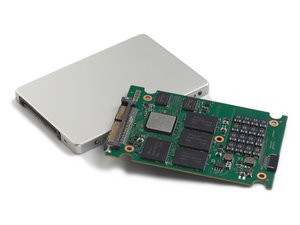Adata 256GB SSD died, **I fixed it**, now I can't recover data from it
I have an Adata 256GB SSD that just died all of a sudden, PC would not see it in BIOS, and plugging it in externally to other PC's would not do anything, it wouldn't even show up in disk management. I ended up taking it apart and reflowing it, and surprisingly, It Worked!
Now it shows up in disk management as unallocated, and my GetData Recover My Files software could see and scan it. Unfortunately, it could not find any files on it (I have always used this software for data recovery and have had a fairly high success rate with it).
Does anyone have any suggestions for software to recover data from a functioning (I guess) SSD? I appreciate any help. Thanks!
Es esta una buena pregunta?

 6
6  4
4  1
1 
